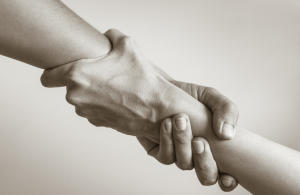Blog
Kindness Culture
See how our community and other amazing people are
spreading kindness and standing up.

An excercise in mindfulness
Zen Master Thich Nhat Hanh is a Vietnamese monk, born in 1926. A global spiritual leader, writer, and activist who is known around the world for his teachings on mindfulness, ethics, and peace. Much of his writing on mindfulness reinforces the notion that daily activities, even the mundane–like washing dishes–can be done to our great

Using QPR to prevent suicide
How do we talk about suicide? Talking about suicide is scary. Like many other types of conversation there is no clear route from point-A to point-B. But, unlike many other types of conversation, a life can hang in the balance. A little talked about point of fact is the issue that we, as people, can

Compassion: Suffering together
Compassion, from the Latin compati, means ‘to suffer with.’ Aristotle argued that we could only experience it if we thought the suffering of another was nontrivial. Aristotle said ‘we would not have compassion for the upset of an emperor who’d lost a shipment of Larks tongues he’d ordered for his party!’ In this sense, it

What is happiness?
“Happiness is a butterfly, which, when pursued, is always just beyond your grasp, but which, if you will sit down quietly, may alight upon you.” -Nathanial Hawthorne Over the recent weeks of isolation, I have found myself resisting temptation to settle in to Netflix, Hulu, Amazon Prime, or an endless stream of YouTube

Gratitude: How do I get grateful
What is gratitude and why does it lead people to live happier and healthier lives? People who are grateful are likely to be joyful. Grateful people are less likely to experience depression and anxiety. Gratitude is associated with humility. And people who are grateful are known to have lasting and meaningful relationships with others. So,

Embrace the Mistakes
We are more comfortable doing when doing familiar things. Familiarity make us feel safe. Consider the way in which you drive to familiar places: when the route between point A and point B is known, we are unlikely to try a new route. After all: if there were a more efficient way of getting home,
